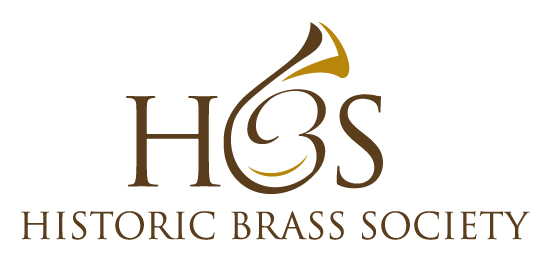Dario Castello - Sonata No. 4 from Sonate Concertate Book I (1658)
For Trombone, Soprano Instrument and Keyboard
Realized and edited by Richard I. Schwartz and Mark J. La Fratta
Antonio Caldara - Deh sciogliete, o mesti lumi from Morte e Sepoltura di Cristo (1724)
For Alto & Tenor Trombones, Soprano and Keyboard
Arranged by Richard I. Schwartz and Mark J. La Fratta
Antonio Caldara - Dio, qual sia from Nabaoth (c. 1729)
For Alto Trombone, Soprano, Bassoon & Keyboard
Arranged by Richard I. Schwartz and Mark J. La Fratta
Johann Joseph Fux - Alma Redemptoris Mater, K. 186 (c1728)
For Alto Trombone, Soprano & Keyboard
Arranged by Richard I. Schwartz and Mark J. La Fratta
Wolfgang Amadeus Mozart - Agnus Dei from Waisenhausmesse, K. 139 (1768)
For Alto Trombone, Soprano & Keyboard
Arranged by Mark J. La Fratta and edited by Richard I. Schwartz
With the exception of the first piece that is an edition, theses works are from a series published by Warwick Music that Schwartz and La Fratta are producing of arrangements of arias for voice and obbligato trombone(s) from the 18th-century sacred repertory of the Viennese Imperial Court. Only two of the five pieces are available in other editions, making these works a welcome addition to the trombonist's repertoire.
Sonata No. 4 is available in facsimile and modern score, but only if one purchases the whole of Sonata Concertate Book I. This collection was Dario Castello's (fl. Venice, early 17th century) most significant musical contribution, Book I having appeared first in 1621 and then re-printed in 1629 and 1658. The publication of one of the sonatas that features trombone is certainly a cheaper way to access this wonderful sonata that has not been available in this format for some time. The trombone (or viola) and soprano instrument are treated equally with respect to virtuosity throughout all eleven of the sonata's sections. The trombonist is required to trill and execute sixteenth-note runs, encompassing a range of c to a1.1 The keyboard realization (I would prefer that the editors had used the name continuo) is too busy, but the figures are provided.
Each of the two arias by Antonio Caldara (c. 1670-1736) are from a sepolcro, a sacred vocal genre similar to the oratorio that was presented on Maundy Thursday or Good Friday at the Habsburg court in the 17th and early 18th centuries. The stories were normally based on the Passion, and were performed before replicas of the Holy Sepulchre, hence the name. Deh sciogliete, o mesti lumi (Ah, free and nourish me, o unhappy lights), is a da capo aria in B minor originally scored for soprano, unison violins, bassoon, two trombones and organ. In this arrangement, the violins and bassoon have been subsumed into the keyboard part. Musically, there is not much to offer the instrumentalists here as the trombone parts are simplistic and perform their two eighths- and one quarter-note figure either homophonically or imitatively as a sequence of suspensions in the A section of the aria. The ranges are b to a1 for the part marked alto and f-sharp to f-sharp1 for the tenor. Although formulaic, the melancholic affect of this aria makes it ideal for church performance during Holy Week. Dio, qual sia (O God, whether I stand convicted or whether my innocence prevails) is another da capo aria, but in C minor. It was originally scored for soprano, trombone, bassoon and basso continuo that has been arranged here with the bassoon part incorporated into that of the keyboard (despite the bassoon being listed on the title page). This is more challenging than the previous piece for the trombonist with trills, sixteenth- and thirty-second-note runs (albeit at an Andante tempo), and a range of g to c2. The overall affect is serious and appropriate for Holy Week.
Both Caldara and Johann Joseph Fux (1660-1741) were colleagues at the Imperial Court - Caldara was vice-kapellmeister from 1717 until his death. Fux was Hofkapellmeister from 1715 until his death, but had enjoyed associations with the Hapsburgs since about 1700. Although a fine composer, as Alma Redemptoris Mater demonstrates, Fux is remembered today primarily for his contrapuntal treatise Gradus ad parnassum (1725). The original instrumentation of soprano, trombone, two violins, bassoon, violoncello and organ (still available in an edition put out by Kagarice Brass Editions) has been arranged omitting the strings and the bassoon. The violin parts have been absorbed by the keyboard part, with the trombone taking on some of the moving parts as well. The other instruments, which were part of the basso continuo in the original, are now covered in the keyboard part. This Marian antiphon setting is divided into seven sections. The first two serve as an instrumental prelude to the initial vocal solo. The trombone imitates and moves in thirds or sixths in runs with the soprano in the following section. The voice is featured alone in the fifth part in triple time. The sixth section opens with an eight-measure trombone solo, after which voice and instrument have plenty of interplay without much strict imitation. Counterpoint has been saved for the finale in triple time in which the trombone imitates the voice in an echo-like fashion. This is a rather joyous piece in B-flat major, moderately challenging with plenty of sixteenth-note runs and a range of c to c2.
While the majority of Mozart masses have trombones doubling the voices colla parte, K. 139 (also known as Waisenhausmesse) features the trombones alone at the outset of the Agnus Dei, with the 1st trombone also doubling the 1st violin before the entrance of the chorus. The full orchestral setting with tenor solo and chorus has been arranged in this version for soprano, trombone and keyboard. The trombone performs primarily the 1st trombone part combined with the most prominent melodic or moving portions of the 2nd trombone and the 1st or 2nd violin parts, to make the solo trombone's contribution more structurally balanced and cohesive than in the original, as well as to fill out the chords. The ending has been re-written so that there is a cadence in C minor to terminate the piece before the Dona nobis pacem. Mozart had written a pause on the dominant chord at this point in order to facilitate the entry into C major for the final section in triple time. The conclusion of this arrangement will sound a little awkward to those who know the complete mass. The keyboard is called upon to fill in all the other choral and orchestral parts with the end result sounding a little thin, but this is certainly an arrangement that works and provides trombonists with an opportunity to get to know Mozart's sacred music in an economic fashion.
All of these publications have introductions that explain the sources, historical context, and how the arrangements have been re-worked from the original, as well as provide translations of the text. The typeface and printing of the music is extremely clear and legible, although there are some spacing errors in the Mozart foreword. My primary query with all the works (excepting the Castello) is - why alto trombone? Just because a trombone part is provided in alto clef does not necessarily mean it must be performed on an alto.2 I have tried all the alto parts on alto trombone, tenor sackbut and my Yamaha YSL 682B, and frankly the music sounds the best on the tenor sackbut. There is no reason why each trombonist should not perform these pieces on the instrument with which she or he is most comfortable. Certainly the two trombones required in Caldara's Deh sciogliete would blend best on two like instruments, preferably tenor. The performer should feel free to experiment to find the right instrument for the right balance for each performing situation, and not be restricted by the provided designations. Keeping that in mind, these publications of Viennese sacred vocal works will help to expand the trombonist's repertoire into the early 18th century.
Notes
i. Middle C is indicated with c.
ii. Howard Weiner raises this same issue in "When is an Alto Trombone an Alto Trombone? When is a Bass Trombone a Bass Trombone? - The Makeup of the Trombone Section in Eighteenth- and Early Nineteenth-Century Orchestras," Historic Brass Society Journal 17 (2005): 37-79.
-- Charlotte Leonard



